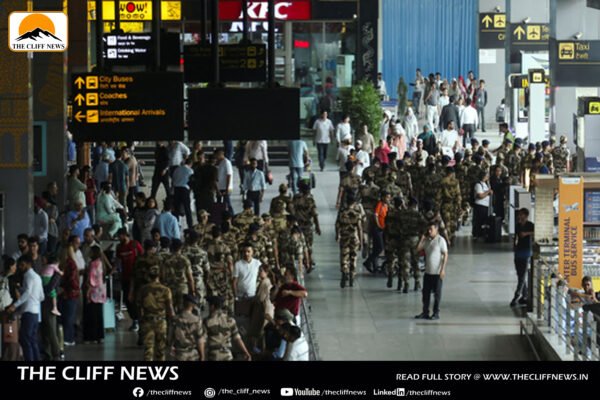India Quietly Reassessing Turkish Business Ties Post-Operation Sindoor Amid Geopolitical Tensions
India-Turkey relations are entering a phase of quiet reassessment as the Modi government begins a systematic review of Turkish investments and business partnerships in the country. This strategic shift follows Operation Sindoor, a high-stakes military operation against Pakistan, and Turkey’s subsequent posture on Kashmir, which New Delhi views as provocative and misaligned with India’s core interests. Economic Ties: Strong Yet Vulnerable According to a February 2025 report by the India Brand Equity Foundation (IBEF), bilateral trade between India and Turkey reached US$ 10.4 billion in FY24, with Turkish firms active in at least five Indian states — Gujarat, Maharashtra, Uttar Pradesh, Jammu & Kashmir, and Delhi. Turkish investments, valued at US$ 240.18 million in cumulative FDI equity inflows since April 2000, span strategic areas such as: Notably, a Turkish company was tasked with electromechanical work for the Atal Tunnel in J&K (2020), while Rail Vikas Nigam Limited (RVNL) signed a MoU in 2024 with another Turkish firm for a metro rail project. However, senior government officials now confirm that all Turkish-linked projects — ongoing or concluded — are under review. While no public cancellations have been announced, sources describe the approach as a “silent unwind” of economic ties, driven by shifting strategic priorities. Geopolitical Triggers At the heart of this recalibration is Turkey’s repeated international commentary on Kashmir and its close alignment with Pakistan — a red line for Indian diplomacy. While India has traditionally maintained a pragmatic posture towards Ankara, the post-Operation Sindoor landscape has prompted a more assertive rethink. A senior official, speaking to News18, said, “All projects involving Turkish firms are under scrutiny… the government is compiling detailed data on each public and private engagement.” Another official from the Ministry of Commerce confirmed that even long-term agreements are being reviewed, though they may not be immediately terminated. Still, future investments and deals are expected to see considerable hesitation. Key Sectors Affected Turkish firms have a visible presence in high-impact infrastructure and service sectors: These aren’t peripheral ventures — they involve essential public services and strategic assets. Any reevaluation could significantly impact urban mobility and logistics infrastructure where Turkey-linked firms are embedded. From Engagement to Caution The shift is stark compared to the enthusiasm seen during Turkish President Recep Tayyip Erdoğan’s 2017 India visit, which resulted in MoUs on: Eight years later, those promises are now being overtaken by strategic divergence and national security recalibrations. What’s Next? So far, the Indian government has not made any official announcement of cancellations, reflecting a cautious, low-profile approach. But the message is clear: economic partnerships will now be judged not just on financial merit but on strategic alignment. As India grows more assertive globally, partners perceived as out of sync with its core interests — however economically viable — may face exclusion from future deals. In effect, Operation Sindoor may become a pivot point not only in India’s defence posture but also in its foreign economic policy, particularly regarding nations seen as sympathetic to its adversaries.










